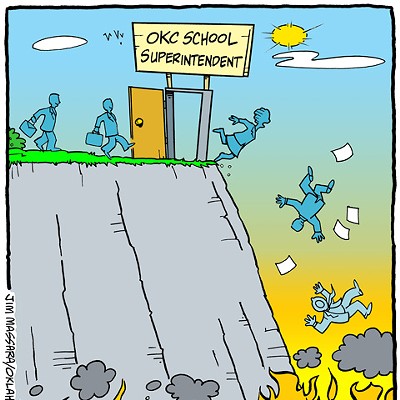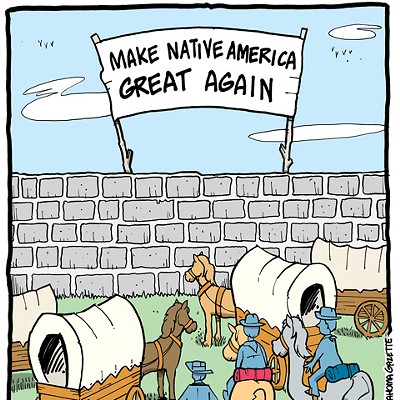Critics of business and industry love to point out cases of corporate greed. Rarely do they praise industries for doing the right thing. One of Oklahoma's largest industries is energy, employing tens of thousands of people in high-paying, technologically advanced careers. It's also generated the revenue to support a lot of farmers, ranchers and private citizens.
The free-enterprise system is founded on the principle of "maximizing profits." However, that doesn't always mean getting every cent possible. Some companies feel an obligation to reinvest in the community as a part of maximizing profits. Very few industries "tax" themselves, yet that's exactly what Oklahoma's oil and gas companies and royalty owners have been doing since 1994. The Oklahoma Energy Resource Board " or OERB " is voluntarily funded by producers and royalty owners through a one-tenth of a percent assessment on the sale of oil and natural gas.
You've seen the OERB commercials about restoring abandoned well sites. OERB has spent $38 million restoring nearly 8,000 such projects across about 75 percent of Oklahoma. Additionally, OERB awards $400,000 in scholarships a year to Oklahoma college students majoring in energy-related fields. OERB also offers a variety of educational programs about the energy industry in schools across the state.
Teachers are trained about fossil fuels. Museums such as the Geoscience Center in Tulsa, Goddard Children's Museum in Sulphur, Jasmine Moran Children's Museum in Seminole, Omniplex in Oklahoma City, Woolaroc Museum and Wildlife Preserve in Bartlesville, and the new Oklahoma History Center by the Capitol have exhibits sponsored and paid for by OERB, which also underwrites programs on conservation in cooperation with the Oklahoma Department of Commerce. Perhaps most importantly, the OERB has educated thousands of people in communities across our state about the dangers of playing around well sites.
Oklahoma's past, present and future is closely aligned with the energy industry. Currently, 85 percent of America's energy is supplied by fossil fuels, and that number's expected to increase to 88 percent by the end of the decade. Virtually everything we touch has some association with oil and gas. Food, clothing, shelter and transportation all depend on fossil fuels.
Oklahoma owes much of its success and growth to the likes of Dean McGee, Sen. Robert S. Kerr, Aubrey McClendon, Larry Nichols, Tom Ward and other leaders from this industry. We also owe a debt of gratitude to the thousands of people who work and invest in Oklahoma's energy industry for that one-tenth of a percent that is making Oklahoma a better place to live and a better place for our kids to get an education.
Orza is dean of the Meinders School of Business at Oklahoma City University.












